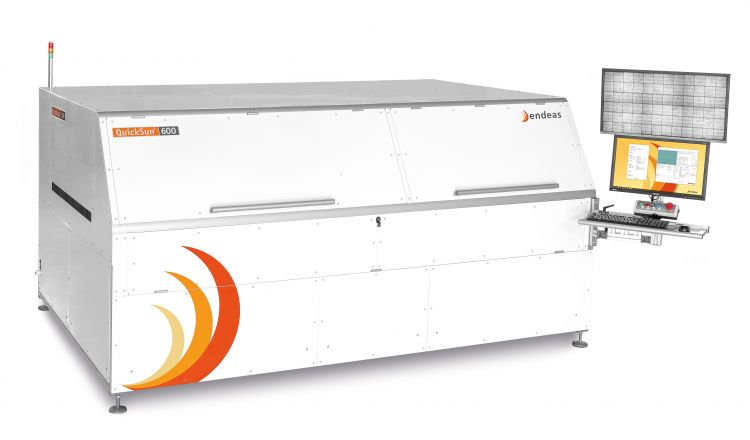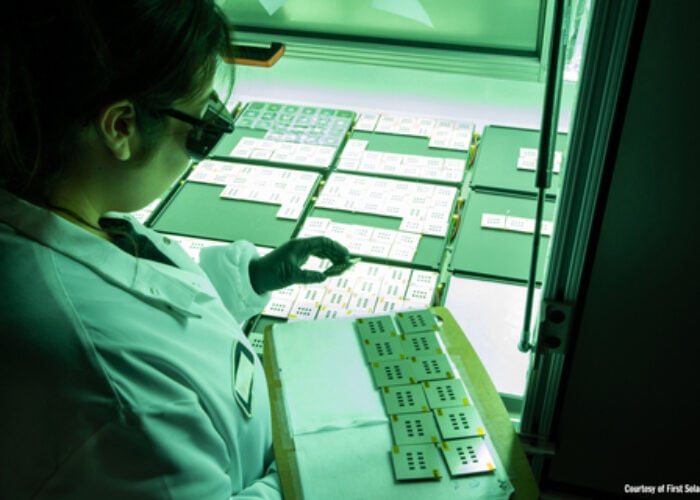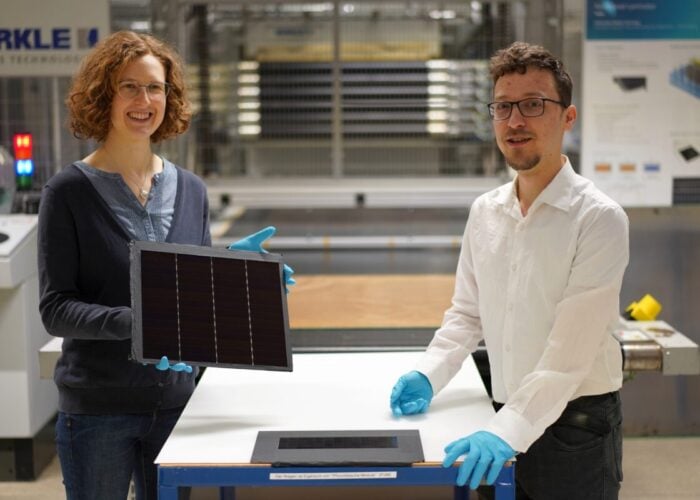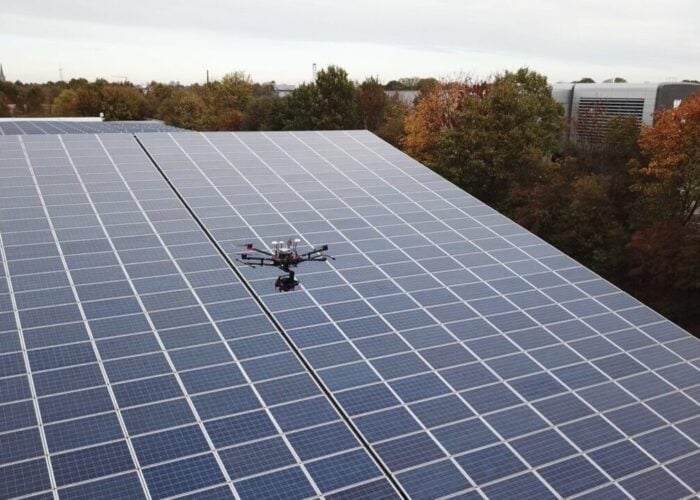
PV module equipment measurement specialist Endeas Oy has developed a new method to measure the steady-state I-V curves in PV modules using high-efficiency solar cells such as PERC, and especially HJT or IBC as solar simulators currently in production applications have limited accuracy, according to the company.
Endeas noted that when measuring I-V curves and maximum power of high-efficiency PV modules, inaccuracies can be discovered, due to the charging of the cells, which leads to a significant underestimation of the maximum power by typical flash testers.
Try Premium for just $1
- Full premium access for the first month at only $1
- Converts to an annual rate after 30 days unless cancelled
- Cancel anytime during the trial period
Premium Benefits
- Expert industry analysis and interviews
- Digital access to PV Tech Power journal
- Exclusive event discounts
Or get the full Premium subscription right away
Or continue reading this article for free
The company noted that increasing the flash pulse length to overcome the issue becomes expensive and comes with additional problems, such as heating of the module during measurement.
Endeas said it had developed a new method to counter the issues. Its Capacitance Compensation (CAC) technique is said to measure the steady-state I-V curve and maximum power of any PV cell or module based on a single flash pulse of only 40 ms. The method is included in its QuickSun 600 system, an all-in-one module testing station.
The Capacitance Compensation method will be presented at the EU PVSEC conference in Brussels on 24 September 2018 by Dr. Henri Vahlman, a scientist at Endeas.
“PV manufacturers are understandably requesting longer and longer flash pulses. They are aware that the maximum power of their high-efficiency products may be underestimated by their current solar simulators, leading them to sell their products at a lower price than necessary”, said Jaakko Hyvärinen, managing director of Endeas. “The new CAC method is perfectly suited for power measurements in PV manufacturing, as measurement results comparable to steady-state solar simulators can be provided for any PV technology with compact and proven flash testers that are straightforward to integrate into a manufacturing line.”
Endeas said that the CAC method was based on measuring the capacitance (ability to store electric charge) of the tested device during the flash pulse. The measured capacitance was taken into account in processing the measurement data, resulting in more accurate steady-state I-V curves and maximum power measurements, according to the company.






